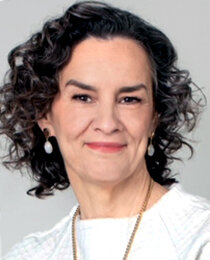Reducing Stress in a Most Stressful Time

Many of us experience high levels of stress at any time, which can lead to declines in our mental health. Almost one in four Americans over the age of 18 reported experiencing mental illness in 2022, according to the Substance Abuse and Mental Health Services Administration. Chronic stress can not only impact our mental well-being, but also take a toll on our physical health.
The good news is that there is a way to help reduce the stress you may be feeling—Mindfulness-Based Stress Reduction (MBSR). MBSR is a course developed by Jon Kabat Zinn at the University of Massachusetts Medical School in 1979.
MBSR teaches a variety of formal mindfulness meditation practices such as body awareness, mindful movement and sitting meditation. But equally important are the practices you learn to integrate into your daily routine. These “informal” practices are the ones that can anchor your attention right in the middle of a stressful situation—and you don’t need special clothes or a yoga mat!
MBSR has been well researched and has been found to be helpful in reducing the experience of stress generally. It has also been shown to minimize the physiological and cognitive effects of stress such as insomnia, anxiety, and pain. It is widely used and well-regarded as a very effective adjunct to traditional medical care.
The principles of MBSR
The main principle of MBSR is embedded in the definition of “mindfulness” which is taught in all MBSR courses. Mindfulness is defined as “paying attention, on purpose in the present moment, non-judgmentally as if your life depended on it.” Paying attention in the present moment, on purpose may sound easy. But when you begin to practice, what you are likely to find is that while the instructions may sound pretty easy, the practice can be very challenging. And that is the heart of the practice!
Mindfulness-Based Stress Reduction training
The training course is quite intensive. It requires a real and sustained commitment over eight weeks of classes. Participants meet for one two-and-a-half-hour class each week. Along with that is homework practice of 45 minutes to an hour a day of mindfulness meditation or mindful movement practices. In addition, there is an all-day Saturday or Sunday retreat. It sounds like a lot and it is. But it is a powerful opportunity to connect deeply with and strengthen your own capacity to transform not only your experience of stress but also to take charge of your health and direction of your life.
Who might benefit from MBSR?
This is a complex question. It is very important to understand that MBSR is not psychotherapy or a form of group therapy. While there are no absolute contraindications, this intensive training is not recommended for individuals who have:
• an active and unstable mental health disorder
• an active substance use disorder
• experienced a recent trauma or traumatic loss
Of course, that doesn’t mean this practice may not be a benefit for those individuals at another point in time. It is advisable to connect with the instructor before the course begins to let them know what’s going on and make a decision together about what will work best for you.
If we pause long enough, we can see that everything around us is constantly changing—that's just life. We can choose how to respond to the circumstances with wisdom rather than with agitation and distress.
Mindfulness is powerfully transformative in this regard. It is not the stressor itself that causes distress, it is how we relate and react to it that is critical to a life of well-being. While a MBSR course may seem daunting, it’s worth the effort if you chose to take it on as a life practice.
For more tips on how to enhance your well-being, visit the Be section of our Be Well health and wellness blog.

About the Author:
Elizabeth Ellen Flynn, MD
Dr. Ellen Flynn is a psychiatrist in Women’s Behavioral Medicine. She is also the director of the Resilience Project at the Embodied Neuroscience Lab and a faculty advisor to the Mindfulness Center at Brown University.
Find a Doctor

The right provider is in our network
Search more than 1,200 providers in our network.



